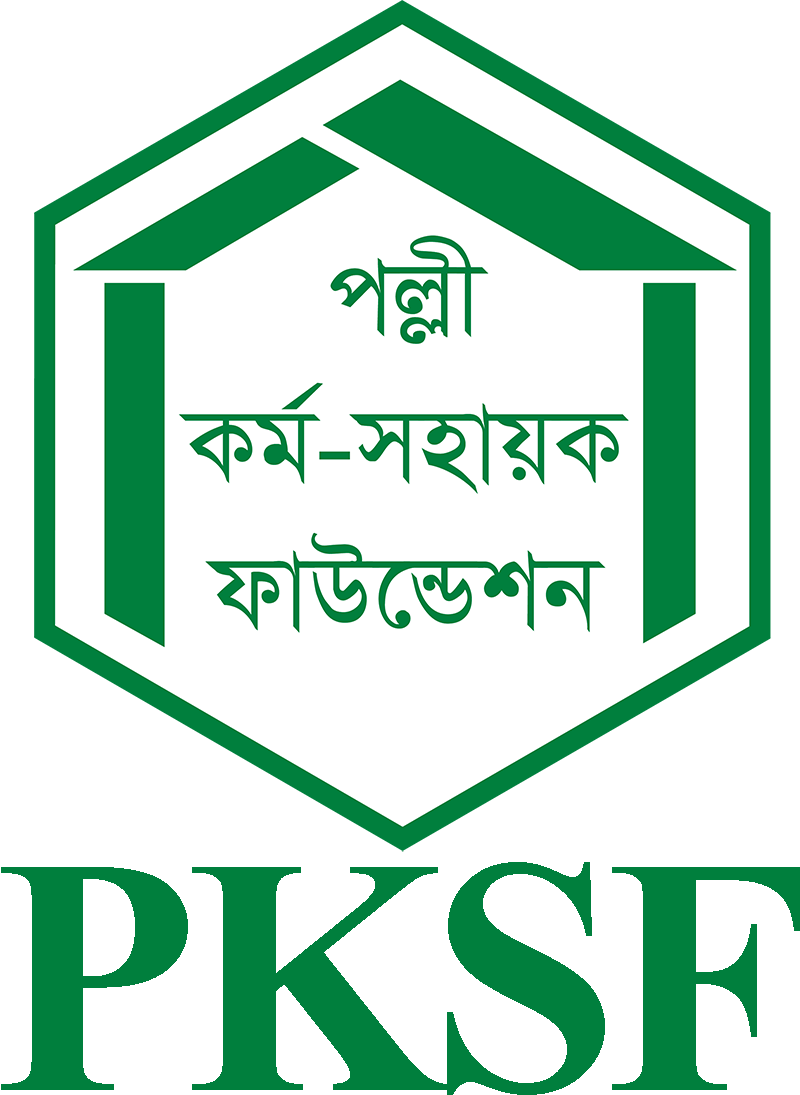Building Resilience in Flood Prone Area: Experience of CCCP of PKSF in Chilmari
Char Pathorghata is one of the villages in Romna union of Chilmari Upazila of Kurigram district. The village is located by the side of the river Brahmaputra. The village is one of the flood-prone areas in the northern region of Bangladesh. Community Climate Change Project (CCCP) of Palli Karma-Sahayak Foundation implemented various activities in this village to mitigate the vulnerability of the people living in this area, particularly the poor people. The project was implemented by RDRS in this area. The project started in 2014 and ended in 2016. How CCCP attempted to reduce vulnerability in this village and how the project activities sustained after the project completion is narrated here.
In the last five years, flood intensity has increased in this village due to the decreasing navigability of the Brahmaputra River. The flood lasts for 10 to 25 days, particularly in the rainy season. In 2017, the intensity of flood was very high. Many houses went under water during the flood and many village dwellers moved to the nearest embankment, school, madrasa, etc. Due to flood, crops were damaged, there was a shortage of food for cattle-goat, tubewell platform went under water, waterborne disease spread-out and people incurred an economic loss. Many people had to collect drinking water from distant places. Materials of houses damaged due to flood. In 2018, however, flood intensity was relatively small.
In this village, various interventions were provided at the household level. Major interventions of CCCP include slatted housing system for goat rearing, vegetable seed distribution, establishing vermicompost, improved stoves, solar panels, cement pillar, etc. Some CCCP participants received training. One tubewell was established for every three to eight households, one hygienic toilet was established for every three households, plinth was raised for every three households, and some tubewell platforms were paved under CCCP projects. Many of these interventions were sustained after the completion of the project. Interventions that were not fully sustained include goat rearing houses, improved stoves, and vermicompost.
Interventions that were continued by CCCP participants were due to the economic, social, and health benefits obtained from the received interventions. Households planted trees in the yard to maintain raised plinth. Tubewells, tubewell-platforms, and toilets were continued through proper use and timely maintenance by the participant households. The toilets were established in high places; as a result, the toilets were not inundated during the flood and fewer people were affected by waterborne diseases. The participants were able to consume vegetables and sell the surplus products by producing vegetables in the homestead after receiving vegetable seeds from CCCP. Because of solar panels, children can study and females can do sewing/stitching at the night. Even though the slatted house for goat did not sustain in many instances, few of the participants in the village who continued the activity acknowledge its effectiveness in reducing the disease of goats.
Negligence of CCCP participants was partly responsible for discontinuation of interventions such as slatted goat house, improved stoves, and vermicompost. Many goat house receivers never repaired the house, sold their goats, keep dry tree branches in the house, and remove the roof tin sheet to use for other purposes. The quality of the improved stoves distributed was not very good. As a result, many improved stoves broke down, and in some cases, the smoke exhaust pipe became unsuitable for use after getting wet by the rain. In the case of vermicompost, the producers found it difficult to sell the product. People were not aware of using compost fertilizer. CCCP participants perceived that to sustain these activities, improved stoves need to be manufactured more durably, people need to be encouraged and aware of the use of vermicompost, improved stoves, and slatted goat houses. Market linkage for vermicompost will be required for its sustainability.
CCCP participants of Char Pathorghata village perceived that more training and meeting need to be provided by integrating government and non-government organizations to deal with the adverse effect of climate change. A value chain needs to be established to sell the agricultural products and vermicompost produced in the char area. At the community or village level, flood and disaster committee can be formed. The committee may work to increase awareness on the climate change issue in the locality. Such committee may be supported financially and equipped with some necessary instruments.
